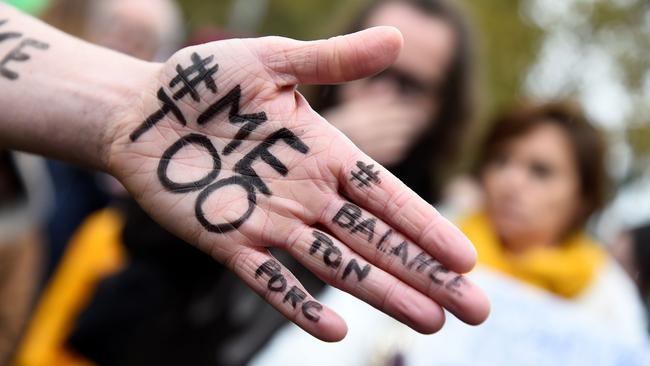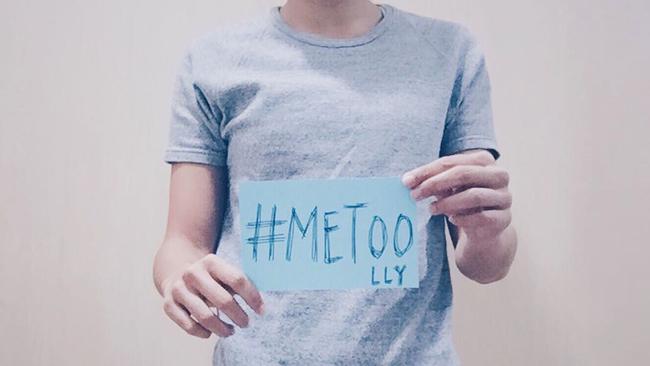Why sexism is even rife among young people
RECENT events have raised critical questions: where do notions of male entitlement and sexist attitudes come from, and what can we do to halt them, asks Mary Barry.
Rendezview
Don't miss out on the headlines from Rendezview. Followed categories will be added to My News.
IF THE recent outpouring of allegations against powerful men has demonstrated anything, it is that the gender power divide is still very much with us, and it is still disturbingly wide.
The flurry of #metoos in the wake of allegations against Hollywood director Harvey Weinstein was a very public reminder that for too long we have put up with a culture that excuses the actions of abusive and violent men — particularly where these men are in positions of power and influence.
Encouragingly, as the voices of women speaking out against these abuses of power have grown louder, a number of men have begun acknowledging their role in making change. They are calling on their peers to be better; better at acknowledging their own privilege and using their influence for good and better at taking action when they see friends, colleagues or relatives disrespecting women.
The tide of recent events has raised critical questions: where do these notions of male entitlement and these sexist and disrespectful attitudes come from? What can we do to halt their development and prevent the abuse and violence towards women that they fuel?
Our Watch has been exploring these questions through our youth campaign, The Line. We asked a thousand 12-20 year olds and 500 parents for their views on male and female roles in relationships. The answers were revealing.

One in five Australians aged between 12 and 20 years old agreed that men should be the head of the household, while one in seven believed deliberate pushing and shoving is acceptable, so long as both parties apologise afterwards.
More than a quarter of young males admitted that it doesn’t bother them if their mates demean women through sexist jokes or comments, and admitted they aren’t worried if they’re with a group of friends and someone puts girls down by making jokes or comments about them.
Concerningly, the research also showed that almost one in four respondents believed that men or boys who take on dominant roles in their relationships with women or girls are likely to gain more respect from their friends.
This view was particularly pronounced among boys and young men, with almost one in three believing dominance is synonymous with peer respect.
It’s a picture of power and control that sadly comes as no surprise to anyone who has worked in the field of violence against women.
‘Boys’ clubs’ like the ones that surround men like Harvey Weinstein and now allegedly Australia’s own Don Burke — often support and foster problematic views like this, and worse, encourage men to engage in disrespectful and misogynistic ‘banter’ as a way to gain acceptance. We saw this when supporters of US President Donald Trump labelled his appalling remarks about assaulting women as ‘locker room talk’.

Sadly, the views of the 1000 young people we surveyed reflected those of the 500 parents, even though the groups were not related to each other. For example, over 35 per cent of parents believed that men should be ‘the head of the household’.
The strong association between the views of young people and those of parents suggests that young people are influenced by and reflect the attitudes, views and behaviours of older generations.
Everywhere young people look they are bombarded by gender norms and stereotypes from earlier generations. They see men and boys in the driver’s seat, whether that’s at the helm of a company or in an intimate relationship. They are told that males are naturally controlled by their libidos and that it’s up to girls to protect themselves or face accusations they were ‘asking for it’.
They see sexist male peer cultures dismissed as just ‘boys being boys’, and sexual harassment of women trivialised as ‘just a joke’. And they see the gender pay gap, and the overrepresentation of men in positions of power and decision-making, from our parliaments to our boardrooms.
With gender inequality normalised all around them, we should not be surprised that young people hold attitudes like the ones The Line survey found. So what is the solution?

If young people believe that male dominance in relationships gets respect, we need to focus our efforts on teaching them what healthy, equal and respectful relationships really look like. And adults need to model gender equality ourselves, in our homes, in our workplaces and right across our society and culture.
Fortunately, I am able to leave you with some very good news here. Schools, workplaces, newsrooms and sports clubs are already beginning to play their part in creating gender equality by working with Our Watch on a range of positive initiatives and through its research, The Line found that 75 per cent of Australians aged between 12 and 20 years old recognise that no matter what clothes a woman chooses to wear, she is never responsible for unwanted sex.
For too long, women have done most of the work of bringing these issues to light and fighting for change. But now men are beginning to understand the magnitude of the issue and its impacts, and more are joining the cause.
Together, we are building a bridge across the gender divide. It is a huge task, and we have only just started construction on the pylons. But if we all work together, the result will carry all of us — men and women — to a better future.
Mary Barry is CEO of Our Watch, the national organisation to prevent violence against women and their children.
Originally published as Why sexism is even rife among young people
